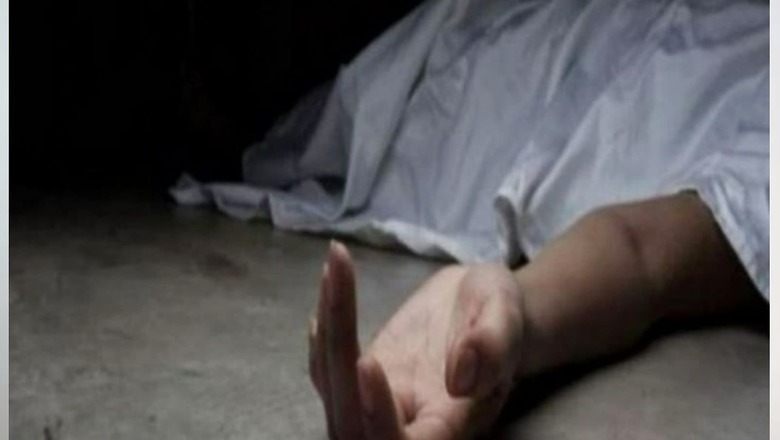
views
A month had gone by since she walked out of her home to the Jhelum bridge, looked back at her unassuming mother, smiled, climbed up the Sopore bridge railing and flung herself in the gushing waves of the Jhelum.
Seerat was not just any teen girl, but the only able child of her widowed mother Fareeda whose two other children were ailing with kidney dysfunction and disability. Fareeda made ends meet with her undying faith in the almighty and by working as a dish cleaner in homes of the rich and affluent in and around her locality Kral Teng, in North Kashmir’s Baramulla district.
To be precise, she worked in the same affluent households, of which the residents were — or chose to be — oblivious about the austerity Fareeda was facing and how life’s interminable hardships with no visible way out drove 17-year-old Seerat to the final edge of depression.
The misery doesn’t end there. When a rescue team reached, it was too late to save Seerat, but the irony is, they couldn’t even fish out her dead body despite ongoing operations for 11 straight days. A concerned group of people from the 80-km-away Awantipora area of South Kashmir reached the river bed to carry out their own search, followed by an expert swimmer from 50-km-away Ganderbal, who reached there with his team and expertise to help.
Ultimately, after citing old examples of how dead bodies that fell in the same river from the same spot before were found 93 days and 7 months after they fell, and supplementary to some senior ageing locals citing ‘paranormal presence that devoured human bodies’ around the area, the government rescue team finally ceased operations. Seerat’s body is still “missing” somewhere in the depths of the Jhelum.
Sopore, the revered apple town of Kashmir, has some of the richest families living in it, mostly engaged in apple growing and trading. It’s logical that they are so engrossed in making money, that they seem to have forgotten that Islam directs Muslims to pay 1/40th of their income as Zakat. So, not surprising that Fareeda, and many like her, never found help from the affluent families of Sopore. But what is surprising is that, in the 18 km area of Sopore, there are 98 registered and many more unregistered NGOs, meaning at least 6 NGOs per km of Sopore, and all claiming to be functional. Out of these, some are government NGOs, some are private, some belong to the Mohalla or Masjid committees, some are Army sponsored and some are non-local NGOs.
Yet, not one of them could save Seerat.
But of course, it’s not a lost cause yet. Many politicians, the likes of Awami National Conference (ANC) vice-president Muzaffar Shah, visited Fareeda’s place to express grief over the demise of her khanmaej koor. They helped a lot too — by making some noise against the Bharatiya Janata Party (BJP) government and ensuring that the media reached there on time for them to make the noise. Undeniably, it was a great help, because the media never noticed Fareeda, or many like her, before she actually lost her daughter.
Eventually, not just press media, but even social media was flooded with ‘brothers’ crying over the sad demise of their ‘beni’ and posting her pics all over the cloud, praying for magfirat. Ironically, Seerat’s mother never pleaded with anyone for financial help as much as she had to plead to all these ‘brothers’ to bring down her daughter’s pictures from their social media accounts. But then, of course, they were just trying to ‘help.’
Baramulla topped the chart in Kashmir’s district-wise list of suicide cases for the year 2021. Police sources revealed that female suicides in Kashmir were mostly, if not always, a result of marriage-related issues, dowry, extra-marital affairs, abuse by alcoholic father/ brother/ partner, child abuse and failure in examinations. However, Seerat’s case was different. She suffered from deep depths of hopelessness, a sinking feeling that she didn’t have a strong support system.
As per a study by the Journal of Clinical and Diagnostic Research, depression by loneliness is not caused by being alone, but by being without a definite set of relationships — in short, a support system that makes one feel secure — and this is a common experience with 80 percent of the minor population in India. Such loneliness makes one vulnerable to a myriad of emotions ranging from low self-esteem, pessimism, worthlessness to negative judgements. The younger population, especially adolescents, lack definite coping skills. It has been conclusively indicated that loneliness-induced depression is very likely to lead to parasuicide or suicide, and hence it is important to intervene at the right time so that the mental and physical health of the patient is maintained. Mental health care experts believe that such patients must be exposed to professional behavioural therapy like coping skills, talking to friends, feeling ‘important’ by making them feel they can ‘contribute’ in some way, hobby development etc. But unfortunately, mental health is not a very encouraged topic of discussion or social or financial investment in Kashmiri society.
As per JCDR, one of the biggest contributing factors to loneliness is low network orientation. Sopore, unlike many other towns of Kashmir valley, has rarely seen any events organised for the sole purpose of congregating youth in one place for interactions and awareness programs. The last such event was organised almost 2 years ago, at Shahi Hamdan Coaching Institute, by Masrat Kar, in association with a non-local organisation RNAF. Masrat happens to be a DDC member today. But, as expected from a radicalised, isolated society, her efforts to bind the youth of Sopore together were not well received. There has not been any other such networking event ever since.
Meanwhile, Seerat’s body is still not found. Many believe that it floated and got stuck under the rubble of the old Bakshi bridge which collapsed before the new bridge was made. But who can you blame for that? The Sopore Municipal Council? No way. The Baramulla Municipal Council has got a dashing, heroic new mayor, who can never do anything wrong. After all, he beat the BJP to win his seat. What more can Kashmiris ask from him?
In the end, Seerat’s distressed mother, by referring to the DC Baramulla, indirectly pleaded to the Government of India for help. Ironically, the same Indian government has been used and abused by Kashmiris for the last 70 years. And the same Indian government has always come to the rescue of Kashmiris, be it from terrorism, floods, financial or medical distress. But whether it is certified as ‘compensable’ or not remains to be seen.
One cannot deny that we lost Seerat because there was no one to guide her or show her a ray of hope or a roadmap to save herself and her family from her distressed situation. It is a collective failure of society and I wonder if we will realise this before we lose more precious lives.
Yana Mir is a journalist and social activist. She is the Vice-President of All JK Youth Society. She tweets at @MirYanaSY. The views expressed in this article are those of the author and do not represent the stand of this publication.
Read all the Latest Opinions here















Comments
0 comment